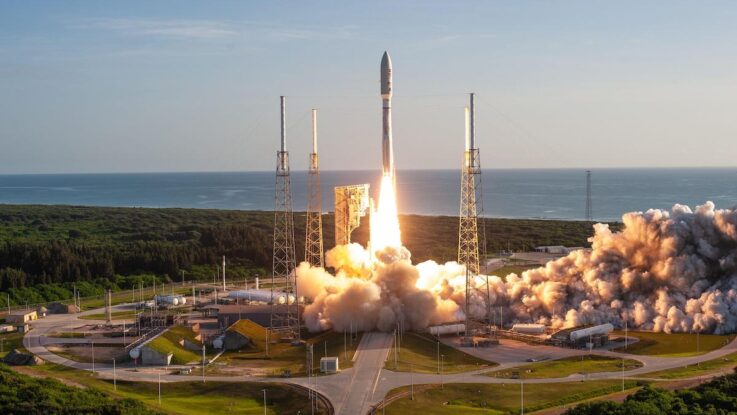
Foreign adversaries are waging cyber espionage campaigns against the US space industry, according to a joint warning issued this week by the National Counterintelligence and Security Center (NCSC), FBI, and the Air Force Office of Special Investigations (AFOSI).
The two-page advisory warns that foreign intelligence entities (FIEs) recognize the space industry as a critical driver of the economy and satellite networks as indispensable to emergency services, energy, financial services, and telecommunications.
These actors are likely to augment efforts to steal the technology powering the space industry and attempt to disrupt the industry through cyberattacks.
The US leads the world in space investment with more than $130 billion given out in the last decade, far ahead of second-place China’s $79 billion investment over the same period.
The report warns FIEs seek to siphon intellectual property and other proprietary data from US space firms for the benefit of their own national security programs and deploy state-backed resources and unfair business practices to disadvantage US space firms.
“We anticipate growing threats to this burgeoning sector of the US economy,” a US counterintelligence official told Reuters in mid-August. “China and Russia are among the leading foreign intelligence threats to the US space industry.”
The national security concerns range from attempts by FIEs to collect sensitive data related to satellite payloads to disrupting and degrading US satellite communications capabilities, including disruption of critical services during emergencies.
The economic security of the space industry could also be impacted by attempts to influence international laws governing space to the disadvantage of US space firms or exploiting critical resources and supply chain dependencies.
Raising Awareness, Enhancing Security As Threats Grow
The document advises companies involved in the space industry to be aware of efforts to infiltrate their organizations, including cyberactivity targeting the company, attempts to recruit the company’s technical experts, or unsolicited offers to establish joint ventures with companies tied to foreign governments or state-owned enterprises.
“Your employees, contractors, and suppliers are vital to protecting your organization,” the advisory noted, outlining a series of mitigation strategies.
Those include the establishment of an insider threat program within the organization and the development an “anomaly log” to track peculiar incidents to potentially spot malicious trends against the organization.
“Incorporate security requirements, such as incident reporting, into third-party contracts and monitor compliance throughout the lifecycle of a product or service,” the advisory recommended. “Build resilience and redundancy into your operations to minimize harm from FIE targeting.”
Companies are also advised to carry out “robust” due diligence on their third-party suppliers, including enforcement of minimum security standards.
“Foster an enterprise-wide security posture at your company, ensuring security, cyber, IT, insider threat, legal, human resources, and procurement offices all collaborate on security efforts,” the advisory stated.
Cybersecurity in Space
A single device with malicious code can foil a networking protocol used by spacecraft, aircraft, and industrial control systems, resulting in unpredictable operations and possible failures, according to a November 2022 report published by researchers at the University of Michigan and NASA.
The researchers tested the attack in several experiments, ending with the simulation of an attack against NASA’s planned Asteroid Redirect Mission.
US Space Force top brass have requested a $700 million investment in cybersecurity as part of the military branch’s overall $30 billion 2024 budget.
In May 2022, Space Force’s Delta 6 mission, responsible for the cyber defense of US military satellites, announced the addition of four squadrons to boost cybersecurity throughout the military branch, as well as oversee the modernization of the aging Satellite Control Network.
A working satellite called Moonlighter, designed to help improve cybersecurity for space systems by providing a real-time, real-world target for pen testers, launched into low-earth orbit (LEO) earlier this summer.